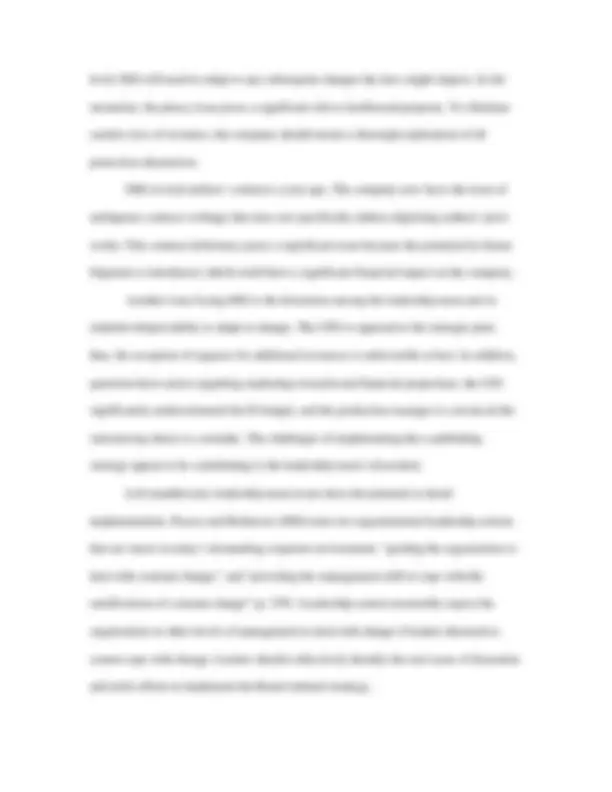



Study with the several resources on Docsity

Earn points by helping other students or get them with a premium plan


Prepare for your exams
Study with the several resources on Docsity

Earn points to download
Earn points by helping other students or get them with a premium plan
Community
Ask the community for help and clear up your study doubts
Discover the best universities in your country according to Docsity users
Free resources
Download our free guides on studying techniques, anxiety management strategies, and thesis advice from Docsity tutors
An in-depth analysis of the challenges harrison-keyes, inc. (hki) faces as it attempts to implement electronic books (e-books) to remain competitive in the publishing industry. The document identifies key issues, including author opposition due to concerns about copy protection and piracy, ambiguous contract verbiage, and dissention within the leadership team. The document also discusses the external challenge of unresolved piracy laws and regulations.
Typology: Study notes
1 / 3

This page cannot be seen from the preview
Don't miss anything!


Problem Analysis: Harrison-Keyes, Inc. Peter Drucker, a foremost authority on business and management, asserts, “…any organization, whether a business, a nonprofit, or a government agency, needs to rethink itself once it is more than forty or fifty years old. It has outgrown its policies and its rules of behavior. If it continues in its old ways, it becomes ungovernable, unmanageable, uncontrollable” (1995, p. 290). Implementing change, however, can also create an out of control environment. The following case study is an application of a nine-step problem- solving approach to the change-pains Harrison-Keys, Inc. (HKI) is enduring as the company attempts to reclaim its once dominant market presence. Situation Background Company Profile HKI, a global publisher, has been in business for over 100 years. The company employs over 3,500 people and maintains geographic sites in the United States, Asia, Europe and Latin America. HKI’s competitive advantage lies in its high-quality materials; the company primarily publishes business, scientific and technical information. HKI currently sells 22,700 book titles and adds about 2,000 new titles each year; approximated sales mix is 40% international and 60% domestic. Key sales divisions include consumer, trade and academic. Company Situation External competitive low-cost retailers and discounters are contributing to declining sales and affecting distribution channels. In response, HKI’s recently hired CEO wants the company to remain competitive and increase profits through implementation of electronic books (e-books), an existing product with a market that
other competitors have already entered. The company envisions sales links on its Web site and distribution through online channels such as Amazon.com. Implementation efforts thus far primarily include budget development, letters to the company’s authors, the outsourcing of digital formatting, and preliminary information systems (IS) development. A series of corporate e-mails and phone conversations reveal numerous factors impeding implementation efforts. In addition, recent publicity indicates internal privileged information about implementation problems is leaking outside the confines of the leadership conference room. To complicate matters further, a recent letter from one of HKI’s well-known authors indicates he is opposed to the strategy; other contracted authors likely share his views. Issue Identification Author opposition poses a significant issue for HKI; without contracted authors, a publisher has nothing to publish. Therefore, obtaining authors’ cooperation is a critical success factor. The primary reasons for opposition hinge on concerns about copy protection, piracy and the subsequent loss of royalties. Author concerns are not without merit. The music industry faced similar challenges, as many will recall from the lawsuit against Napster, an organization formerly offering free music electronic downloads. Furthermore, an article in Managing Intellectual Property (2001) predicted the publishing industry would lose $1.5 billion “from e-book piracy by 2005” (“DATA,” p. 10). The current state of unresolved piracy laws and regulations introduce a potentially significant external challenge. If formal laws and regulations occur at the government